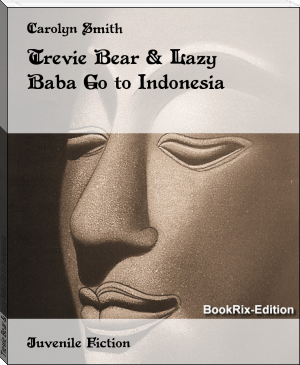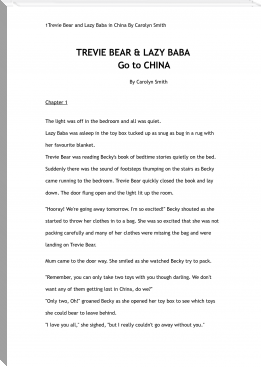At the Back of the North Wind - George MacDonald (most inspirational books of all time txt) 📗

- Author: George MacDonald
Book online «At the Back of the North Wind - George MacDonald (most inspirational books of all time txt) 📗». Author George MacDonald
Her yellow-beaks slept as sound as tops;
That day she had done her very best,
And had filled every one of their little crops.
She had filled her own just over-full,
And hence she was feeling a little dull.
"Oh, dear!" she sighed, as she sat with her head
Sunk in her chest, and no neck at all,
While her crop stuck out like a feather bed
Turned inside out, and rather small;
"What shall I do if things don't reform?
I don't know where there's a single worm.
"I've had twenty to-day, and the children five each,
Besides a few flies, and some very fat spiders:
No one will say I don't do as I preach -
I'm one of the best of bird-providers;
But where's the use? We want a storm -
I don't know where there's a single worm."
"There's five in my crop," said a wee, wee bird,
Which woke at the voice of his mother's pain;
"I know where there's five." And with the word
He tucked in his head, and went off again.
"The folly of childhood," sighed his mother,
"Has always been my especial bother."
The yellow-beaks they slept on and on -
They never had heard of the bogy To-morrow;
But the mother sat outside, making her moan -
She'll soon have to beg, or steal, or borrow.
For she never can tell the night before,
Where she shall find one red worm more.
The fact, as I say, was, she'd had too many;
She couldn't sleep, and she called it virtue,
Motherly foresight, affection, any
Name you may call it that will not hurt you,
So it was late ere she tucked her head in,
And she slept so late it was almost a sin.
But the little fellow who knew of five
Nor troubled his head about any more,
Woke very early, felt quite alive,
And wanted a sixth to add to his store:
He pushed his mother, the greedy elf,
Then thought he had better try for himself.
When his mother awoke and had rubbed her eyes,
Feeling less like a bird, and more like a mole,
She saw him - fancy with what surprise -
Dragging a huge worm out of a hole!
'Twas of this same hero the proverb took form:
'Tis the early bird that catches the worm.
"There, mother!" said Diamond, as he finished; "ain't it funny?"
"I wish you were like that little bird, Diamond, and could catch worms for yourself," said his mother, as she rose to go and look after her husband.
Diamond lay awake for a few minutes, thinking what he could do to catch worms. It was very little trouble to make up his mind, however, and still less to go to sleep after it.
CHAPTER XXIV
ANOTHER EARLY BIRD
HE GOT up in the morning as soon as he heard the men moving in the yard. He tucked in his little brother so that he could not tumble out of bed, and then went out, leaving the door open, so that if he should cry his mother might hear him at once. When he got into the yard he found the stable-door just opened.
"I'm the early bird, I think," he said to himself. "I hope I shall catch the worm."
He would not ask any one to help him, fearing his project might meet with disapproval and opposition. With great difficulty, but with the help of a broken chair he brought down from his bedroom, he managed to put the harness on Diamond. If the old horse had had the least objection to the proceeding, of course he could not have done it; but even when it came to the bridle, he opened his mouth for the bit, just as if he had been taking the apple which Diamond sometimes gave him. He fastened the cheek-strap very carefully, just in the usual hole, for fear of choking his friend, or else letting the bit get amongst his teeth. It was a job to get the saddle on; but with the chair he managed it. If old Diamond had had an education in physics to equal that of the camel, he would have knelt down to let him put it on his back, but that was more than could be expected of him, and then Diamond had to creep quite under him to get hold of the girth. The collar was almost the worst part of the business; but there Diamond could help Diamond. He held his head very low till his little master had got it over and turned it round, and then he lifted his head, and shook it on to his shoulders. The yoke was rather difficult; but when he had laid the traces over the horse's neck, the weight was not too much for him. He got him right at last, and led him out of the stable.
By this time there were several of the men watching him, but they would not interfere, they were so anxious to see how he would get over the various difficulties. They followed him as far as the stable-door, and there stood watching him again as he put the horse between the shafts, got them up one after the other into the loops, fastened the traces, the belly-band, the breeching, and the reins.
Then he got his whip. The moment he mounted the box, the men broke into a hearty cheer of delight at his success. But they would not let him go without a general inspection of the harness; and although they found it right, for not a buckle had to be shifted, they never allowed him to do it for himself again all the time his father was ill.
The cheer brought his mother to the window, and there she saw her little boy setting out alone with the cab in the gray of morning. She tugged at the window, but it was stiff; and before she could open it, Diamond, who was in a great hurry, was out of the mews, and almost out of the street. She called "Diamond! Diamond!" but there was no answer except from Jack.
"Never fear for him, ma'am," said Jack. "It 'ud be only a devil as would hurt him, and there ain't so many o' them as some folk 'ud have you believe. A boy o' Diamond's size as can 'arness a 'oss t'other Diamond's size, and put him to, right as a trivet- if he do upset the keb-'ll fall on his feet, ma'am."
"But he won't upset the cab, will he, Jack?"
"Not he, ma'am. Leastways he won't go for to do it."
"I know as much as that myself. What do you mean?"
"I mean he's a little likely to do it as the oldest man in the stable. How's the gov'nor to-day, ma'am?"
"A good deal better, thank you," she answered, closing the window in some fear lest her husband should have been made anxious by the news of Diamond's expedition. He knew pretty well, however, what his boy was capable of, and although not quite easy was less anxious than his mother. But as the evening drew on, the anxiety of both of them increased, and every sound of wheels made his father raise himself in his bed, and his mother peep out of the window.
Diamond had resolved to go straight to the cab-stand where he was best known, and never to crawl for fear of getting annoyed by idlers. Before he got across Oxford Street, however, he was hailed by a man who wanted to catch a train, and was in too great a hurry to think about the driver. Having carried him to King's Cross in good time, and got a good fare in return, he set off again in great spirits, and reached the stand in safety. He was the first there after all.
As the men arrived they all greeted him kindly, and inquired after his
That day she had done her very best,
And had filled every one of their little crops.
She had filled her own just over-full,
And hence she was feeling a little dull.
"Oh, dear!" she sighed, as she sat with her head
Sunk in her chest, and no neck at all,
While her crop stuck out like a feather bed
Turned inside out, and rather small;
"What shall I do if things don't reform?
I don't know where there's a single worm.
"I've had twenty to-day, and the children five each,
Besides a few flies, and some very fat spiders:
No one will say I don't do as I preach -
I'm one of the best of bird-providers;
But where's the use? We want a storm -
I don't know where there's a single worm."
"There's five in my crop," said a wee, wee bird,
Which woke at the voice of his mother's pain;
"I know where there's five." And with the word
He tucked in his head, and went off again.
"The folly of childhood," sighed his mother,
"Has always been my especial bother."
The yellow-beaks they slept on and on -
They never had heard of the bogy To-morrow;
But the mother sat outside, making her moan -
She'll soon have to beg, or steal, or borrow.
For she never can tell the night before,
Where she shall find one red worm more.
The fact, as I say, was, she'd had too many;
She couldn't sleep, and she called it virtue,
Motherly foresight, affection, any
Name you may call it that will not hurt you,
So it was late ere she tucked her head in,
And she slept so late it was almost a sin.
But the little fellow who knew of five
Nor troubled his head about any more,
Woke very early, felt quite alive,
And wanted a sixth to add to his store:
He pushed his mother, the greedy elf,
Then thought he had better try for himself.
When his mother awoke and had rubbed her eyes,
Feeling less like a bird, and more like a mole,
She saw him - fancy with what surprise -
Dragging a huge worm out of a hole!
'Twas of this same hero the proverb took form:
'Tis the early bird that catches the worm.
"There, mother!" said Diamond, as he finished; "ain't it funny?"
"I wish you were like that little bird, Diamond, and could catch worms for yourself," said his mother, as she rose to go and look after her husband.
Diamond lay awake for a few minutes, thinking what he could do to catch worms. It was very little trouble to make up his mind, however, and still less to go to sleep after it.
CHAPTER XXIV
ANOTHER EARLY BIRD
HE GOT up in the morning as soon as he heard the men moving in the yard. He tucked in his little brother so that he could not tumble out of bed, and then went out, leaving the door open, so that if he should cry his mother might hear him at once. When he got into the yard he found the stable-door just opened.
"I'm the early bird, I think," he said to himself. "I hope I shall catch the worm."
He would not ask any one to help him, fearing his project might meet with disapproval and opposition. With great difficulty, but with the help of a broken chair he brought down from his bedroom, he managed to put the harness on Diamond. If the old horse had had the least objection to the proceeding, of course he could not have done it; but even when it came to the bridle, he opened his mouth for the bit, just as if he had been taking the apple which Diamond sometimes gave him. He fastened the cheek-strap very carefully, just in the usual hole, for fear of choking his friend, or else letting the bit get amongst his teeth. It was a job to get the saddle on; but with the chair he managed it. If old Diamond had had an education in physics to equal that of the camel, he would have knelt down to let him put it on his back, but that was more than could be expected of him, and then Diamond had to creep quite under him to get hold of the girth. The collar was almost the worst part of the business; but there Diamond could help Diamond. He held his head very low till his little master had got it over and turned it round, and then he lifted his head, and shook it on to his shoulders. The yoke was rather difficult; but when he had laid the traces over the horse's neck, the weight was not too much for him. He got him right at last, and led him out of the stable.
By this time there were several of the men watching him, but they would not interfere, they were so anxious to see how he would get over the various difficulties. They followed him as far as the stable-door, and there stood watching him again as he put the horse between the shafts, got them up one after the other into the loops, fastened the traces, the belly-band, the breeching, and the reins.
Then he got his whip. The moment he mounted the box, the men broke into a hearty cheer of delight at his success. But they would not let him go without a general inspection of the harness; and although they found it right, for not a buckle had to be shifted, they never allowed him to do it for himself again all the time his father was ill.
The cheer brought his mother to the window, and there she saw her little boy setting out alone with the cab in the gray of morning. She tugged at the window, but it was stiff; and before she could open it, Diamond, who was in a great hurry, was out of the mews, and almost out of the street. She called "Diamond! Diamond!" but there was no answer except from Jack.
"Never fear for him, ma'am," said Jack. "It 'ud be only a devil as would hurt him, and there ain't so many o' them as some folk 'ud have you believe. A boy o' Diamond's size as can 'arness a 'oss t'other Diamond's size, and put him to, right as a trivet- if he do upset the keb-'ll fall on his feet, ma'am."
"But he won't upset the cab, will he, Jack?"
"Not he, ma'am. Leastways he won't go for to do it."
"I know as much as that myself. What do you mean?"
"I mean he's a little likely to do it as the oldest man in the stable. How's the gov'nor to-day, ma'am?"
"A good deal better, thank you," she answered, closing the window in some fear lest her husband should have been made anxious by the news of Diamond's expedition. He knew pretty well, however, what his boy was capable of, and although not quite easy was less anxious than his mother. But as the evening drew on, the anxiety of both of them increased, and every sound of wheels made his father raise himself in his bed, and his mother peep out of the window.
Diamond had resolved to go straight to the cab-stand where he was best known, and never to crawl for fear of getting annoyed by idlers. Before he got across Oxford Street, however, he was hailed by a man who wanted to catch a train, and was in too great a hurry to think about the driver. Having carried him to King's Cross in good time, and got a good fare in return, he set off again in great spirits, and reached the stand in safety. He was the first there after all.
As the men arrived they all greeted him kindly, and inquired after his
Free e-book «At the Back of the North Wind - George MacDonald (most inspirational books of all time txt) 📗» - read online now
Similar e-books:





Comments (0)